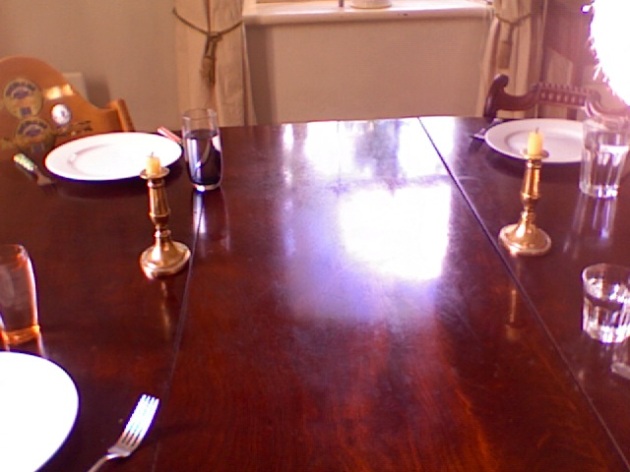Sunday lunch
A few years ago, in the UK to see family, we spent a couple of nights with friends who’d been close neighbours in London, and who now live in a farmhouse in Essex. I’ve known Dina for years, and count her a close friend – which is why I’m grasping for words to describe how she lives without sounding critical. The quickest thing I can say is that Dina doesn’t much care for housekeeping. She loves her family, and wants them to be happy and healthy, but she sets no store by a well-made bed, or by keeping muddy boots outside. For Dina these things just don’t matter.
When she showed me the room John and I were to sleep in, I had the immediate thought that I’d be able to sleep there as long as I didn’t turn on the light. But before I could do this, I had to find something – anything, what? – to put the bits and pieces scattered over the sofa bed in. Hunting round I found a Batman rucksack, half full of assorted toys, into which I wiped bits of puzzle, coins, playing cards, cutlery, and a few desultory sultanas.
The next morning I went out for a walk, stunned by the beauty of the river and landscape around, and by how totally different it was from the narrow Victorian street Dina and I had shared just five years before. But I hadn’t gone far when I realised that, without gumboots, I wouldn’t get much further.
Walking into the kitchen in my socks, I found Dina sitting with her feet on a chair by the wood-burning stove, reading the Sunday paper. Her new puppy was gnawing at one leg of her chair, and one of her boys was slathering peanut butter on to bread. Dina, oblivious, sat sunk in a long article. She looked content. She wasn’t trying to make sense of her life by taking a long walk, as I was. She wasn’t trying to think out her next book, as my husband was. And she wasn’t trying to finish a film review before lunch, as her husband was. I envied her.
But as it turned out I was wrong. Dina wasn’t oblivious of the morning happening around her, however absorbed she’d appeared when I’d stepped into the kitchen. On returning for a second time from my muddy walk I was greeted by the smell of roast lamb and potatoes. Dina, her dark brown hair falling like a curtain over her face, was pressing pastry into a flan tin. A cloth was on the table and the children were being called in to lunch. Lunch was generous – three vegetables and dumplings – and everyone seemed glad to be there.
After the four children had pushed back their chairs and run into the garden – Emma had become especially fond of their dog – Dina told us a story. When her eldest son was a toddler, she’d kept up a painting studio in East London. But she rarely used it. Two days a week she’d set up childcare, catch the train to her studio, and sit in front of a primus stove, rubbing her hands, drinking coffee, and chatting. But she didn’t paint much.
A friend recommended Dina see a therapist. ‘My life is a mess’, Dina explained to the therapist. ‘I want to paint, but I can’t concentrate. My husband complains that I neglect our home. But I just don’t care about it. I love my son, and want lost more children – but it’s just not working.’ ‘Look’, said the therapist. ‘It’s simple, as well as terribly obvious. You’re an artist, not a housewife’. And from then on for Dina it really was that simple. Six words, within a single therapeutic session, had set her free.
I can’t help admiring Dina’s disregard for housekeeping. However I know myself well enough to know that I can’t escape three unmade beds, wet clothes in the washing machine, and cereal stuck to three bowls simply by walking out the door. And it isn’t just because I’m not an artist. It’s because I have an imaginative investment in an attractive home. It’s an important part of who I am. I like to walk into our kitchen, ready for the next meal, without wishing I didn’t have to.
I never thought much about the value of caring for a home when I was younger. Perhaps I was too busy, too preoccupied – or just too much in denial of what my mother had done for me as a child. The day I turned the corner, the moment I decided that it really was worthwhile – and that to the degree it was worthwhile it was up to me to make it happen – was the day I sat down for Sunday lunch at Dina’s house by the estuary.

